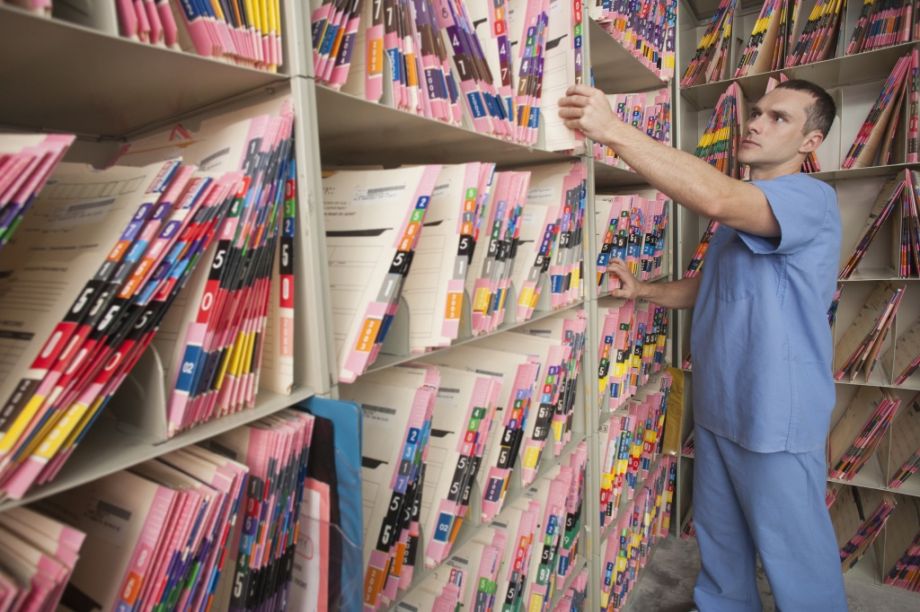Medical Billing Job Description: Key Skills, Responsibilities & Career Overview
Introduction
In the bustling world of healthcare, efficient and accurate medical billing is essential for ensuring that healthcare providers are compensated fairly and patients’ insurance claims are processed seamlessly. A medical billing specialist plays a vital role in this process, acting as a bridge between healthcare providers, insurance companies, and patients. If you’re considering a career in healthcare administration or are interested in a role that combines administrative skills with healthcare knowledge, understanding the medical billing job description is crucial. This comprehensive guide covers the key skills,responsibilities,career outlook,benefits,and practical tips for succeeding in this rewarding field.
What Is a Medical billing Specialist?
A medical billing specialist is responsible for submitting and following up on insurance claims to ensure healthcare providers receive proper reimbursement. They handle a variety of tasks, including patient data entry, coding procedures accurately, and managing billing discrepancies. This role requires strong attention to detail, understanding of medical billing software, and excellent communication skills.
Key Skills Required in Medical billing
Successful medical billing professionals possess a combination of technical knowledge, analytical skills, and interpersonal abilities. Here are the essential skills needed:
- Medical Coding Knowledge: Familiarity with CPT, ICD-10, and HCPCS codes is vital for accurate claim submission.
- Attention to Detail: Accuracy is crucial to avoid claim denials and ensure correct reimbursement.
- Understanding of Healthcare Laws: Knowledge of HIPAA regulations and insurance policies safeguards patient information and ensures compliance.
- Proficiency with Billing Software: Experience with Electronic Health records (EHR) systems like Kareo, NextGen, or eClinicalWorks.
- Communication Skills: Ability to interact professionally with insurance companies, providers, and patients.
- Problem Solving: Resolving billing discrepancies efficiently and effectively.
- Time Management: Managing multiple claims and deadlines without compromising accuracy.
Primary Responsibilities of a Medical Billing Specialist
The core responsibilities highlight what you can expect when working in this role. They include:
- Processing Medical Claims: Preparing, submitting, and tracking insurance claims for healthcare services provided.
- Medical coding and Data Entry: Assigning appropriate medical codes for procedures and diagnoses.
- Verifying Patient Insurance: Ensuring patient coverage details are current before billing.
- Follow-Up on Claims: Monitoring unpaid claims and following up with insurance companies or patients as needed.
- Handling Denials and Rejections: Analyzing reasons for claim denials and resubmitting corrected claims.
- Maintaining Accurate Records: Keeping detailed billing records for auditing and compliance purposes.
- Patient Billing and Support: Issuing bills to patients and assisting with payment plans or questions.
career Outlook and Opportunities in Medical Billing
The demand for skilled medical billing professionals is on the rise,driven by the increasing complexity of healthcare billing practices and the expansion of insurance-based healthcare services.According to the U.S. Bureau of Labor Statistics, employment of medical records and health information technicians is projected to grow faster than average over the next decade.
| Aspect | Details |
|---|---|
| Average Salary | $45,000 – $55,000 annually (varies by experience & location) |
| Job Growth | 10% growth expected (2023-2033) |
| Career Progression | Advance to roles like Billing Supervisor, Coding Specialist, or Healthcare Administrator |
a career in medical billing offers stability, growth, and opportunities to specialize or move into management roles within healthcare administration.
Benefits of Working as a Medical Billing Specialist
- Steady Employment: Vital role in healthcare, ensuring ongoing demand.
- flexible Work Options: Many positions offer remote work or part-time hours.
- Career Development: opportunities for training and advancement in healthcare administration.
- Impactful Role: Contributing directly to the efficiency and accuracy of healthcare financial operations.
Practical Tips for Aspiring Medical Billers
- Get Certified: Certifications like CPC (Certified professional Coder) or CBCS (Certified Billing and Coding Specialist) enhance credibility.
- Gain hands-On experience: Internships or entry-level positions help understand real-world processes.
- Stay Updated: Regularly update your knowledge of insurance policies, coding guidelines, and healthcare laws.
- Develop Strong Organizational Skills: Managing multiple claims requires excellent prioritization and accuracy.
- Invest in Training: Attend courses or webinars on medical billing and coding for continual improvement.
Case Study: Success Story of a Medical Biller
Maria, a certified medical billing professional, began her career working in a small clinic. Through dedicated training and ongoing certification, she developed expertise in complex insurance claims and coding. Today, Maria manages a team at a regional hospital, overseeing billing processes and training new staff. Her story exemplifies how skill development and perseverance can lead to career advancement in medical billing.
First-Hand Experience: What to Expect
Most medical billing specialists find the role rewarding but demanding. You’ll need to be meticulous, proactive, and adaptable to changing healthcare policies.While the workload can be challenging during busy periods, the job satisfaction from ensuring accurate reimbursements and helping patients manage their bills makes it worthwhile.
Conclusion
The medical billing job description encompasses a diverse set of skills, responsibilities, and career opportunities. As a vital component of healthcare administration, medical billers ensure the financial health of providers and streamline patient billing processes. Whether you’re just starting your career or seeking to advance within healthcare, developing the right skills, gaining experience, and pursuing certifications can open doors to a fulfilling and stable profession in medical billing. Embrace this dynamic field and become an essential part of the healthcare system’s financial backbone!



